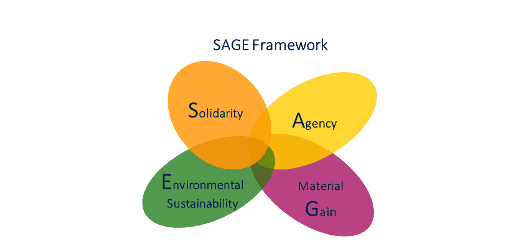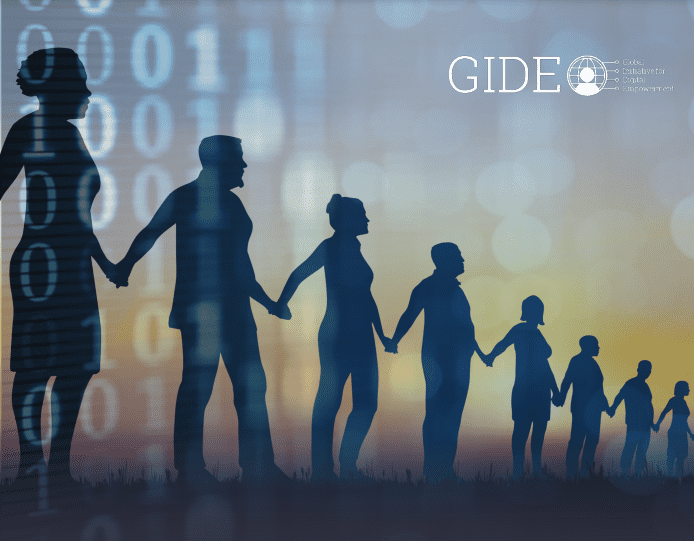Homepage » Programs
Programs
The Global Solutions Initiative proposes policy responses to major global problems addressed by the G20, the G7 and other global governance fora. Together with our global multistakeholder network we develop and disseminate policy recommendations through workshops, publications, events and policy briefs submitted to the Think20 and Think7 process.
Our projects are organized in programs that address global challenges in four thematic areas: the socio-economic transformation, sustainability, digital governance and multilateralism & global governance.
Socio-Economic Transformation

Read More
Economic Paradigm Change
The workshop series invites major contributors in the development of new paradigms for economics, an underlying critique of orthodox economies and its central characteristics: individualism, socially disengaged behaviour, etc.
The workshop series invites major contributors in the development of new paradigms for economics, an underlying critique of orthodox economies and its central characteristics: individualism, socially disengaged behaviour, etc.

Read More
Measuring Prosperity
The workshop series is co-organized by the GSI and TNI. It aims at bringing the measurement of prosperity in these two domains into consonance as a prelude to the consistent assessment of government policy and business reporting.
The workshop series is co-organized by the GSI and TNI. It aims at bringing the measurement of prosperity in these two domains into consonance as a prelude to the consistent assessment of government policy and business reporting.

Read More
Recoupling Dashboard
The Recoupling Dashboard is a country-specific research tool to measure the wellbeing of societies beyond GDP and illustrates the correlation of economic prosperity, social prosperity and environmental sustainability.
The Recoupling Dashboard is a country-specific research tool to measure the wellbeing of societies beyond GDP and illustrates the correlation of economic prosperity, social prosperity and environmental sustainability.
Sustainability

Read More
Circular Economy
The Circular Economy Solutions Dialogues (CESD) advance the circular economy agenda and facilitate the initiative to disseminate green technologies globally and their contextualized application.
The Circular Economy Solutions Dialogues (CESD) advance the circular economy agenda and facilitate the initiative to disseminate green technologies globally and their contextualized application.

Read More
Digitalization in Agriculture
The workshop series on "Enabling policies for digitalization in agriculture" aims at developing concrete policy recommendations for digitalization in agriculture to enhance productivity, inclusivity, and sustainability.
The workshop series on "Enabling policies for digitalization in agriculture" aims at developing concrete policy recommendations for digitalization in agriculture to enhance productivity, inclusivity, and sustainability.
Digital Governance

Read More
Digital Empowerment
The workshop series aims at improving the rules of digital governance to protect individuals and democracy in an environment distorted by the power of obscure, mass data aggregation and influencer-paid surveillance capitalism.
The workshop series aims at improving the rules of digital governance to protect individuals and democracy in an environment distorted by the power of obscure, mass data aggregation and influencer-paid surveillance capitalism.

Read More
Revisiting Digital Governance
The GSI has set itself the goal of actively advancing the debate on digital governance and developing proposals in close cooperation between research, business and politics that will lead to the reorientation of the digital space.
The GSI has set itself the goal of actively advancing the debate on digital governance and developing proposals in close cooperation between research, business and politics that will lead to the reorientation of the digital space.
Multilateralism and Global Governance

Read More
China-West Dialogue
The China-West Dialogue (CWD) is an inclusive project which draws together thought-leaders. The CWD seeks to define an “alternative framework” for China-West relations which dominate geopolitics.
The China-West Dialogue (CWD) is an inclusive project which draws together thought-leaders. The CWD seeks to define an “alternative framework” for China-West relations which dominate geopolitics.

Read More
Rethinking Multilateralism
and Global Governance
The workshop series will discuss new strategies and models for international cooperation that is sustainable, resilient and just in the light of multiple global crises.
and Global Governance
The workshop series will discuss new strategies and models for international cooperation that is sustainable, resilient and just in the light of multiple global crises.




